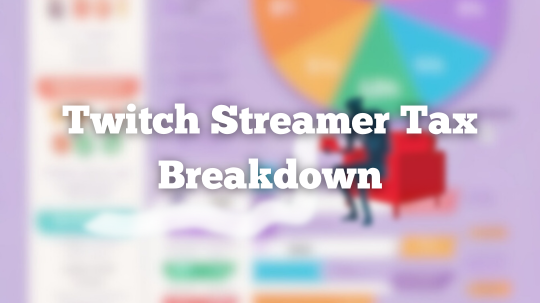Have you ever heard of Twitch? It's this incredible platform that connects millions of people from across the globe through live streaming. It's amazing how it started as a gaming hub back in 2011 and now, it offers so much more. From live music performances to intricate LEGO builds, there's something for everyone on Twitch. What sets it apart from other online streaming platforms is its interactive chat feature that creates a sense of community and belonging. It's like you're in a virtual room with people who share your interests and passions. It's truly a unique experience!
The emergence of Twitch streaming has brought about a significant change in the way people consume entertainment. Initially, the platform was only popular among gamers but it has now grown into a cultural phenomenon. Streamers, who are known for their engaging content and appealing personalities, have become digital influencers who shape trends and create vibrant communities. As more people recognize the potential of turning their hobbies into careers, the Twitch community continues to grow, fostering creativity and camaraderie.
Streamers are often faced with the challenge of navigating the complex terrain of income and taxes amidst the allure of digital stardom and the excitement of content creation. This detailed guide aims to provide clarity on the financial landscape for Twitch streamers, unraveling the intricacies of income sources and tax obligations. Apart from the emotes and cheers, streamers have a fiscal responsibility that they need to understand, to sustain their passion while complying with financial regulations. This journey will demystify Twitch's income and taxes, providing insights and clarity to both new and experienced streamers alike.
Twitch Income and Tax Basics

With a variety of revenue streams to not only sustain their passion but also turn it into a viable profession. This section will unravel the intricate tapestry of income sources, shedding light on the diverse channels through which Twitch streamers can monetize their craft.
Donations: Fueling Streams with Viewer Support
Donations are a crucial source of income for a lot of Twitch streamers. They are a direct way for viewers to financially support their favorite streamers' content. Donations can range from small tips to significant contributions. However, the financial and tax-related consequences of these donations can be complicated for both the streamers and the contributors.
Subscriptions: Recurring Support and Exclusive Perks
Subscriptions on Twitch provide a reliable source of income for streamers. This allows viewers to support their favorite channels regularly. Different subscription tiers unlock exclusive emotes and perks. These perks create a sense of exclusivity and can encourage viewers to subscribe. However, it's important to understand that Twitch takes a percentage of the subscription fee, and streamers must be aware of the tax implications of receiving recurring payments.
Bits: Microtransactions and Digital Cheers
Twitch has its digital currency called "Bits" which viewers can use to show their support for streamers by making small transactions. Streamers earn additional revenue from the Bits they receive. It is important to understand the taxation of Bits as they contribute to the streamer's total income. The relationship between Bits and taxable income is complex and requires careful consideration.
Ad Revenue: Monetizing Content through Ads
Ad revenue is one way for Twitch streamers to earn money, as they get paid based on the number of ads their viewers watch. While this can provide an additional source of income, streamers need to understand the tax implications that come with earning through ads. The complexities of ad revenue, along with tax rules, highlight the importance of financial knowledge in the streaming industry.
Sponsored Content: Collaboration and Brand Partnerships
Collaborating with brands and taking part in sponsored content can be a great way for Twitch streamers to earn additional income. However, it is important to have a clear understanding of contractual obligations, ethical considerations, and potential tax implications. Successfully navigating sponsored content requires streamers to strike a balance between financial gains and maintaining the trust of their audience.
Twitch streamers need to understand the tax landscape in order to navigate their financial journey. Being aware of the different thresholds and categories is crucial to avoid any complications and ensure compliance with tax obligations. This section will delve into the key factors that Twitch streamers should consider when it comes to taxation.
The Entry Point into Tax Obligations
Once Twitch streamers earn more than $400, they must report their taxes. This amount is calculated after deducting relevant expenses. The $400 threshold includes all earnings from different sources such as donations, subscriptions, bits, ad revenue, and sponsored content. This threshold marks the point at which streamers must comply with both federal and state regulations. Streamers also need to acknowledge their status as an independent contractor and the responsibilities and considerations it brings. Reporting income and navigating the nuances of self-employment tax becomes imperative for streamers to ensure financial accountability. This transition from a casual hobbyist to a financially responsible content creator requires streamers to proactively engage with tax-related processes.
Delineating Tax Implications
The difference between hobbyist and business streamers sets the basis for how Twitch streamers approach their tax obligations. Hobbyist streamers who mainly stream for enjoyment rather than profit are subject to income tax but exempt from self-employment tax. However, they cannot deduct business expenses, which limits the potential benefits of navigating the tax landscape strategically.
On the other hand, business streamers whose streaming activities make up a significant source of income have to pay both income tax and self-employment tax. This category allows them to deduct various business expenses, including streaming equipment, artistic commissions, and a portion of monthly internet fees. The ability to offset income through legitimate deductions becomes a valuable tool for business streamers, providing an effective approach to tax optimization.
To determine one's classification, streamers must reflect on their primary motives behind streaming. If the goal is to generate income and invest in the channel's growth, transitioning from hobbyist to business streamer aligns with financial prudence. As Twitch streaming continues to evolve, streamers must understand the nuances of these tax thresholds, fostering a proactive approach to financial management.
Twitch Donations and Taxation

The world of Twitch donations adds a distinctive aspect to the financial world of streamers by mixing viewer support with the complexities of taxation. In this section, we will explore the complexities of Twitch donations, untangle the tax considerations, and differentiate between individual streamers and non-profit organizations.
Defining Twitch Donations
Twitch donations are a popular way for viewers to show support to their favorite streamers. They involve sending money as a way of appreciating the content creators produce. Although the term "donation" suggests a charitable act, it's important to note that Twitch contributions come in different forms, including bits, tips, and direct monetary gifts. These donations are crucial in keeping the streaming culture alive and enable content creators to improve their production quality, invest in better equipment, and have more time to create.
Taxability of Twitch Donations
Many people wonder if Twitch donations are taxable. However, the answer is clear: yes, they are. Despite the misconception that donations may be exempt from taxation, the Internal Revenue Service (IRS) considers Twitch donations as taxable income.
Whether a streamer is a hobbyist or relies on streaming as their primary source of income, the revenue received through Twitch donations adds to their overall earnings. This includes not only monetary contributions but also virtual goods such as bits. Therefore, Twitch income is comprehensive in nature.
To comply with tax regulations, streamers must maintain careful records of every bit, tip, or direct donation. They should be transparent about their finances and acknowledge that all revenue received through Twitch is taxable income.
Nonprofit Organizations vs. Individual Streamers
It is important to differentiate between Twitch donations given to nonprofit organizations and those given to individual streamers. Twitch offers a feature called Charity tool, which enables streamers to conduct charity streams and direct funds to registered nonprofits. Donations made through this tool have a different tax status, as donations to qualified nonprofit organizations are usually tax-deductible. This provides viewers with a tangible reason to support charitable causes. However, donations made directly to individual streamers are not tax-deductible, which reinforces the idea that these donations are considered personal income.
IRS Guidelines for Qualified Organizations
For viewers who intend to make philanthropic donations, it is crucial to understand the IRS guidelines for qualified organizations. Platforms like Twitch's Charity tool involve intermediary financial processes, which can affect the tax-deductible status of donations. Therefore, viewers should confirm that the recipient is a registered nonprofit organization to ensure the tax-deductible status of their contributions.
The IRS has strict criteria for organizations to qualify for tax-exempt status. By ensuring that a charity possesses this designation, viewers can be assured that their contributions align with IRS guidelines for tax deductions. This awareness not only helps viewers make informed donation decisions but also reinforces the integrity of charitable endeavors within the Twitch community.
Twitch Donations and Tax Deductions

The relationship between donations and tax deductions can be complicated. In this section, we will examine Twitch donations in detail, including information on their deductibility. We will also differentiate between subs, bits, and tips, and discuss the tax implications of donations made through Twitch's Charity Tool, providing clarity on all these aspects.
The question of whether Twitch donations are tax-deductible is a common concern for both streamers and viewers. The answer requires a nuanced understanding of the nature of these contributions. Unlike traditional charitable donations, Twitch donations made to individual streamers are generally not tax-deductible.
When viewers contribute bits, tips, or direct donations to support their favorite streamers, these financial gestures are considered personal income for the recipient. This distinction is crucial for streamers to communicate clearly with their audience, fostering transparency about the financial implications of viewer contributions.
While the generosity of Twitch viewers is undeniable, it's important to manage expectations regarding the deductibility of donations. Streamers should convey that, unlike traditional charitable contributions, Twitch donations do not offer the same tax benefits for contributors.
Differentiating Subs, Bits, and Tips
Twitch offers various ways for viewers to financially support their favorite streamers, such as subscriptions, bits, and tips. It's important to understand the differences between these methods, especially when it comes to taxes.
Subscribing to a Twitch channel means that viewers commit to paying a certain amount of money on a recurring basis. While Twitch takes a percentage of subscription revenue, the remaining amount goes to the streamer as income. From a tax standpoint, subscription revenue is subject to taxation as part of the streamer's overall earnings.
Bits are Twitch's virtual currency, which viewers can use to show appreciation during live streams. However, bits themselves don't qualify for tax deductions. Streamers should keep in mind that the total amount of income they receive, including bits, is subject to taxes.
Direct tips are monetary contributions made by viewers to support streamers. Like bits, tips also count as taxable income for streamers. Streamers should keep accurate records of these contributions to report them correctly during tax filings.
Twitch's dedication to charitable initiatives brings a new perspective to the donation landscape. When viewers donate through Twitch's Charity Tool during charity streams, the tax implications differ from individual streamer donations.
Donations made through Twitch's Charity Tool, which are directed towards registered non-profit organizations, hold tax-deductible status. This distinction aligns with traditional charitable contributions, providing viewers with a tangible incentive to support charitable causes.
Streamers who participate in charity streams should highlight this differential tax status. They should encourage viewers to use the Twitch Charity Tool to donate to registered non-profits. This not only enhances the impact of charitable endeavors within the Twitch community but also aligns with viewers' philanthropic goals while maximizing potential tax benefits.
Detailed Breakdown of Twitch Streamer Taxes

Understanding Twitch streamer taxes requires a comprehensive grasp of various components. This section will delve into the detailed breakdown of Twitch streamer taxes and clarify the taxation of tips, donations, charitable streams, virtual goods (Bits), the difference between income tax and self-employment tax, and the significance of quarterly tax payments.
Tips, Donations, and Charitable Streams
Twitch streamers often receive tips and donations from their viewers, which contribute to their taxable income. Streamers must keep track of these earnings and report them during tax filings.
Charity streams conducted through Twitch's Charity Tool provide a platform for giving back, but it's important to note that the tax implications for streamers and viewers differ. Donations made directly to streamers during charity streams are taxable income, so clear communication regarding the financial aspects of such events is crucial.
Taxation of Virtual Goods (Bits)
As a reminder, please keep in mind the following information:
Virtual currency, such as Bits on Twitch, can add complexity to a streamer's taxes. The IRS considers Bits as taxable income, just like any other form of income. Therefore, streamers need to report the Bits they receive during streams as part of their overall taxable income.
Additionally, streamers may need to navigate depreciation rules, especially for business-related assets like gaming computers. While deductible as a business expense, the IRS may require streamers to depreciate the cost of such assets over time. This means streamers need to keep careful records to ensure accurate tax reporting.
Income Tax vs. Self-Employment Tax
Income tax is an unavoidable obligation for streamers, regardless of their employment status. Unlike traditional employees, self-employed streamers need to track and remit income tax independently as there is no automatic deduction from their paychecks. Besides, self-employment introduces an additional layer of tax in the form of self-employment tax, which supports Social Security and Medicare. Freelancers and independent contractors, including Twitch streamers, are solely responsible for this tax burden, unlike W-2 employees who share it with their employers.
Quarterly Tax Payments for Streamers
As a Twitch streamer, you may be required to make estimated quarterly tax payments to the IRS if you anticipate owing $1,000 or more in taxes for the year. This includes both income tax and self-employment tax. To avoid potential penalties and interest charges, you must adhere to deadlines in April, June, September, and January. Maintaining compliance with these requirements is essential for streamers seeking financial stability. To achieve this, it is important to keep meticulous records, accurately project your income, and proactively meet deadlines. Doing so will ensure a smooth process and mitigate the risk of financial setbacks.
Business Expenses and Write-Offs

This section highlights essential categories for streamers to consider, ensuring a nuanced approach to tax optimization that involves understanding income and recognizing deductible business expenses.
When it comes to content creation, upgrading and maintaining your streaming setup including computers, microphones, and cameras can be considered deductible business expenses.
As a streamer, it is essential to have a stable internet connection. You can deduct a portion of your internet bill that corresponds to your professional use as a legitimate business expense. Similarly, if your phone plays a vital role in your streaming activities, you can consider a portion of its costs as deductible. These are essential utility costs that you can claim as business expenses.
If you are a streamer who attends events, conferences, or meet-ups related to your content, you may be able to claim deductions for associated travel expenses. This includes costs such as transportation, accommodation, and meals. It is essential to keep accurate records of these expenses to ensure that your deductions are properly claimed. Additionally, you can also claim deductions for any software subscriptions related to your streaming activities.
Businesses can claim subscriptions to software or services that are used for content creation as deductible expenses. This includes graphic design tools, video editing software, and streaming management applications. By investing in these tools, businesses can improve the quality and professionalism of their content, which can help attract and retain customers.
Depreciation is a tax deduction given to businesses for the loss in value of an asset over time due to wear and tear. For example, if a streamer uses a computer for their business, they can write off the cost of the computer over several years to reduce their taxable income. Although this may require a longer-term perspective, it can provide a substantial deduction over time.
When deducting the costs of a gaming computer or laptop that is used for both personal and business purposes, you need to calculate the business-use percentage. To do this, you need to determine the amount of time the computer is used for business purposes vs. personal use. For example, if your computer is used 50% of the time for streaming and 50% for personal use, then only 50% of the cost is considered a deductible business expense.
The De Minimis Safe Harbor Election is a simplified deduction option for smaller purchases. It allows streamers to deduct up to $2,500 in computer costs during the first year of use. This option streamlines the process of tracking and deducting expenses, making it particularly advantageous for smaller purchases.
Transitioning from Hobbyist to Business Streamer

As channels grow, many creators contemplate transitioning from hobbyist to a more business-oriented approach. This section delves into the considerations, processes, and potential tax benefits associated with this shift.
Many people stream on platforms like Twitch for fun, without the primary goal of making money. These hobby streamers may not invest a lot of money in their channels, view streaming as a side activity, and may not rely on Twitch as a significant source of income.
On the other hand, some people approach Twitch as a business opportunity to generate revenue. Business streamers invest in their channels, purchase equipment, and seek out monetization opportunities.
If you are considering transitioning from a hobby streamer to a business streamer, it's important to evaluate your streaming activity. Ask yourself if you are streaming with the goal of making money, and if you've invested in your channel through purchases, courses, or upgrades. These factors can help you determine if you are ready to take a more business-oriented approach on Twitch.
The IRS has established specific criteria to determine whether someone is considered a business, taking into account factors such as profit motive, effort to make a profit, and the regularity of business activities. Understanding these criteria can help streamers make informed decisions about how to categorize their activities.
Business streamers have an advantage because they can claim business expenses as deductions in order to reduce their taxable income. This includes costs associated with equipment, internet bills, promotional activities, and other related expenses. Keeping accurate records is crucial to support these deductions.
By taking advantage of deductions, business streamers can lower their overall tax liability. For example, if a streamer earns $9,000 from Twitch in a given year but spends $700 on new equipment, their taxable income would be reduced to $8,300. This demonstrates the potential impact of business write-offs on tax obligations.
It's a common misconception that streamers must have an LLC (Limited Liability Company) to claim business write-offs. However, independent contractors can still deduct business expenses on their personal tax returns by using a Schedule C form, even without forming a separate business entity.
Streamers have the advantage of being able to reassess their streaming activity and categorize themselves based on their goals. This flexibility allows them to make strategic decisions that are aligned with their evolving circumstances, whether they're transitioning from being a hobbyist to a business streamer or vice versa.
Filing Taxes as a Twitch Streamer

If you are a Twitch streamer and earn over $600 in a year, Twitch may send you a Form 1099-MISC. This form is crucial for reporting income to the IRS. It's important to review the information on the 1099 and contact Twitch support to correct any errors, if necessary.
The standard tax return form, Form 1040, is the primary document that streamers use to report their income and expenses. This comprehensive form covers various income sources and deductions, providing an overall picture of a streamer's financial activity.
As an independent contractor, streamers are responsible for paying both income tax and self-employment tax. To calculate the self-employment tax, streamers can use Form 1040 SE, which contributes to Social Security and Medicare. It is important for streamers to include self-employment tax in their overall tax planning.
Schedule C is a crucial form for streamers as it is used to report income or loss from a business. In the context of Twitch streaming, streamers use Schedule C to detail their Twitch income and any deductible business expenses.
Streamers should keep meticulous records of all income sources, including revenue from subscriptions, ads, donations, and any business-related expenses. This comprehensive documentation is crucial for accurate reporting on Schedule C.
It is important for streamers to properly categorize their income and expenses when filling out Schedule C. This ensures compliance with tax regulations and helps to optimize their financial reporting. They should allocate revenue and deductions to specific categories accurately.
Once Schedule C is complete, streamers can calculate their net profit or loss from their Twitch business. The net profit amount is subject to income tax and is an essential factor in understanding the overall financial health of the streaming venture.
Streamers who are independent contractors must also be aware of the self-employment tax. This tax contributes to Social Security and Medicare and is calculated separately from other taxes. Streamers should include it in their overall tax liability to avoid any surprises during the filing process.
Communication Tips for Streamers Donating to Charity

Charity streams are a fantastic way for Twitch streamers to support their communities. In this section, we'll explore the importance of clear communication, avoiding misleading statements, and best practices for announcing charitable contributions.
During charity streams, effective communication is crucial to maintain transparency and trust with viewers. It's important to avoid making promises that may be difficult to keep and refrain from making commitments linked to specific metrics such as subscriber numbers or bits received.
It's important to follow certain best practices to ensure a positive experience for both streamers and viewers. Openly sharing your intentions is crucial to building trust and transparency with your viewers. You should clearly communicate the percentage or specific amount of revenue that is going to be donated.
Additionally, taking the time to explain why you have chosen a particular cause is essential to enhance authenticity. Providing context can help your viewers better understand your motives and why you're dedicated to the cause.
Finally, offering regular updates is key to maintaining an open line of communication with your viewers. Keeping them informed on the progress of charitable goals creates a sense of community involvement.
Viewer's Perspective: Charitable Donations on Twitch

Engaging in charitable donations on Twitch can add a philanthropic dimension to the viewing experience. To identify charitable donations, viewers should be aware of contributing money through dedicated platforms such as Twitch's Charity tool, Tiltify, or directly through a charity's fundraising system. These avenues ensure transparency and often provide tax-deductible receipts, making it crucial for viewers to understand what constitutes a charitable donation on Twitch. Additionally, viewers should be cautious of fraudulent collections and utilize verified charitable platforms to avoid any such concerns.
It is advisable to use verified charitable platforms like Twitch's Charity tool or other recognized fundraising services such as Tiltify. These platforms ensure that donations are streamlined, and funds are safely received by the intended charity. Moreover, they make the tax-related documentation process simpler, which adds legitimacy to the donation.
Twitch values integrity and relies on its community to maintain it. If you suspect that a charitable collection is fraudulent, you can file a user report. While Twitch may not investigate the fulfillment of promises by streamers, your reports help maintain the integrity of the platform.
It is important to be aware of these aspects if you want to participate in charitable endeavors on Twitch. By doing so, you can help foster a community that is transparent and values genuine philanthropy.
Twitch's Charity Tools and Other Fundraising Platforms

Twitch offers a range of platforms and tools to help creators raise funds for charity. In this section, we will explore the Twitch Charity tool, its integration with other platforms such as Tiltify and StreamLabs Charity, and the benefits and limitations associated with it.
The Twitch Charity Tool is a key feature for creators who want to raise money for charitable causes. It simplifies the fundraising process by allowing creators to choose an eligible charity, set fundraising goals, and collect donations transparently through Twitch. This tool enhances the visibility of charitable campaigns and makes them accessible to a broader audience.
Twitch's Charity Tool is a great way to raise funds for charities. However, there are other external fundraising platforms like Tiltify and StreamLabs Charity that offer more features. These platforms come with dedicated extensions that work with Twitch, making it easier to support additional charities and manage campaigns.
Using Twitch's Charity Tool is simple, visible within the Twitch community, and has the potential for wider reach. But it's important to note that only a curated list of eligible charities is available. For creators who have specific causes they want to support, alternative platforms like Tiltify may be more flexible.
By considering the pros and cons of each tool, creators can make informed decisions based on their fundraising goals and the charities they want to support. Whether using Twitch's native tool or external platforms, the ultimate goal is to create a charitable community within the Twitch streaming community.
Conclusion
Mastering the financial landscape of Twitch is crucial for streamers navigating the dynamic realm of content creation. This guide delves into diverse revenue streams, tax obligations, and the intricate balance between Twitch income and taxation.
We will unravel the multifaceted sources of Twitch income, including donations, subscriptions, bits, ad revenue, and sponsored content. The guide also explains how to navigate the tax threshold and distinguish between hobbyist and business streamers. This will provide clarity on fiscal responsibilities within the Twitch ecosystem.
From decoding the tax implications of Twitch donations to exploring deductible expenses, we will provide insights into the financial complexities streamers encounter. The transition from a hobbyist to a business-oriented approach, coupled with transparent communication on charitable contributions, will offer nuanced insights into financial growth.
Empowering streamers in the financial realm requires proactive engagement with tax obligations and strategic use of business write-offs. Recognizing the responsibility inherent in financial success, streamers can align growth with legal compliance.
The shift from casual hobbyist to a business mindset, alongside transparent discussions on charitable contributions, enriches the streaming narrative. Streamers are encouraged to embrace financial literacy, ensuring a robust foundation for sustained success in the competitive landscape of Twitch streaming.

